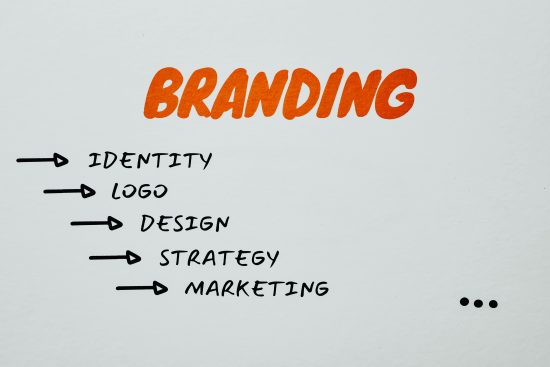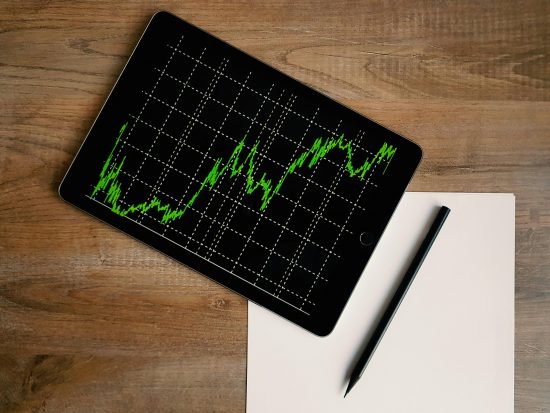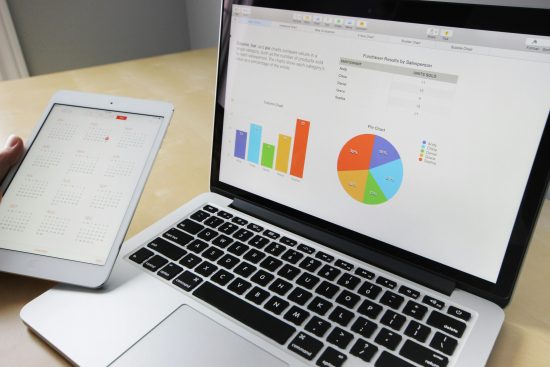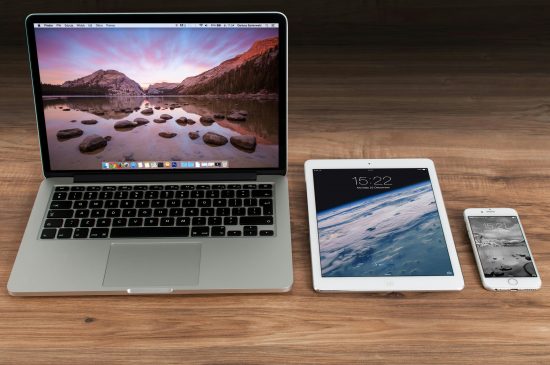
30 Tools That No Designer Can Live Without
Designers are extremely busy people. Fact. Not only do they have to make time to find inspiration for their next project, manage feedback, attend meetings, and communicate with their clients, they also have to find the time to actually sit down and do the work.
Let’s not forget the time and effort they have to put into mocking up an idea, creating a visual for sharing or keeping abreast of modern design trends. The role of a designer is so much more than just ‘colouring in’.
To ease the workload of time-poor designers, we’ve compiled a comprehensive list of the best software, apps, tools, skills, websites and resources that no designer can live without. Each of these tools has been carefully selected for its ability to help you streamline your work, find inspiration easily, show off your amazing design skills, and make collaboration easier.
We’ve broken the guide down into the 10 key areas so you can instantly find what you’re looking for — you are busy people after all. Check it out and feel free to let us know if we’ve missed any off the list.
 Hardware
Hardware
If you’re serious about design, there are some essential pieces of kit you will need. We have listed the top 3 pieces of hardware for designers below.
iMac or MacBook
Strictly speaking, now that most design software is available on both PC and Mac, it doesn’t particularly matter which platform you choose. However, the Mac’s pedigree, its powerful and intuitive OS and its built-in support for design peripherals make it the overwhelming favourite for design professionals. Did we mention they also look great in any creative workspace?
Your choice of desktop (iMac) or laptop (MacBook Pro & MacBook Air) will obviously depend on whether you will be travelling a lot, or indeed whether you like to work from home or in coffee shops. If you prefer to be flexible, we would always recommend the MacBook.
DSLR Camera
You may not always want to use your own photography in your design work, but it’s definitely worthwhile having a good DSLR camera on hand so you can easily document ideas and capture images to use for textures, backgrounds and more.
One of the most widely used DSLR cameras is the Canon EOS 1200D, predominantly for its relatively low cost and its ability to deliver 18MP images.
Moleskine
With all this technology available, you still can’t beat good old fashioned pen and paper to brainstorm ideas and concepts. So why not do it in style and treat yourself to a decent sketchbook from Moleskine or Field Notes? Keep it in your bag so you can quickly jot down ideas wherever you are.
 Research Tools
Research Tools
Now that we’ve taken a look at some fantastic pieces of hardware, you’ll need to get your creative juices flowing. In this next section, we’ve compiled a list of some of the best resources available that will help you to get inspired.
Dribbble
Dribbble is billed as “show and tell for designers”. In a nutshell, it is the premier resource for discovering and connecting with designers around the globe. Designers can upload images and GIFs (or “shots” as they are referred to on Dribbble) and other users can ask questions, provide feedback, and debate a designer’s visual choices.
Computer Arts Subscription
Ever since its inaugural issue back in 1995, Computer Arts has been the go-to magazine for anyone into graphic design. Each and every issue is jam-packed with advice, opinion, recent projects and an abundance of inspiration, making it an invaluable resource for any creative professional. If that wasn’t enough, you can also get your fill of Computer Arts Magazine in print, a fully-interactive iPad edition or both.
Niice
Niice is a fantastic tool for gathering ideas and expressing your ideas faster. Its highly intuitive drag and drop interface allows you to create mood boards in a matter of minutes. You also have access to a private personal space where you can collect images and inspiration without worrying about them showing up in public searches.
 Layout Tools
Layout Tools
Unfortunately, no one has yet to develop a tool that will design a layout for you. However, there are some tools that can help make the process easier.
Modularscale
One of the most common challenges for any web design project is determining accurate ratios for font sizes. This is where Modularscale comes into its own. This app helps you to decide on accurate ratios for your font sizes, as well as providing CSS font size codes for when you have to copy and paste into a stylesheet.
Responsify
Online grid generators are extremely handy for custom responsive HTML/CSS templates and Responsify is arguably the best of the bunch. Key features include the ability to generate your own grid, or even use these grids as a reference so you can create your own from scratch. You can also use Responsify as a great visualisation tool to better understand the use of white space between columns and page content.
Golden Ratio Calculator
Although not necessarily a new innovation in the world of design (it is almost 2,400 years old after all), the golden ratio is found almost everywhere in nature and it applies to design composition as well. It states that “two elements are in perfect harmony when measured to the ratio of 1:1.618”.
Obviously, you don’t need to achieve this ratio for every single relationship in your design work, but understanding it’s value as a timeless design fundamental is certainly worthwhile. This handy calculator should help you to calculate and scale the golden ratio for any workspace.
 Branding Tools
Branding Tools
A logo is a visual representation of what your company stands for and therefore acts as the “face” of your business. This makes them a fantastic way of promoting your brand both on- and off-line, and a fantastic way of standing out from your competition. Unfortunately, getting them right can be tricky.
If you’re struggling with your branding, we’ve compiled a list of high quality logo creation tools to help you create your brand.
Spaces
Spaces is a fantastically simple to use tool for creating striking logos in a matter of minutes. All you need to do is input your company name and use a few keywords to describe what it does, and Spaces will automatically generate hundreds of relevant logos. You also have the option to make minor alterations such as colours and typography to create a design that truly reflects your brand.
GraphicSprings
Another powerful logo creation tool is GraphicSprings. In fact, it’s probably the most powerful on our list, which is mainly down to the sheer number of customisations and alterations you can make. One of the most useful features is the option to categorise possible logos based on your business type, such as food and drink, sports and abstract. If that wasn’t enough, you can also hire one of GraphicSprings’ in-house designers to create an entirely custom logo for you.
A Pen and Paper
Although we have included a few handy tools for logo creation in this section, most designers would argue that the most important tool a designer could use to create a logo would be pencil and paper. This is because your idea has to come from an initial thought process, which is then roughed out using a pencil and paper. Unfortunately, going straight to the computer can remove this critical thought process. Once you have your rough idea, you can then use software to fully flesh out your logo designs.
 Typography Tools
Typography Tools
Typography is one of the most challenging yet rewarding parts of any design process. Not only do you have to choose a suitable typeface, you also need to decide on appropriate line spacing, height, point size and so much more. Getting your typography right will make your design work more powerful, more readable, and generally much more effective. If you’re still not convinced by the power of typography, a recent study revealed that people are significantly more likely to agree with statements that are written in Baskerville than in Comic Sans or Helvetica.
Typewolf
Typewolf was launched in 2013 as a response to a general “lack of good resources for choosing fonts for design projects”. Everything about Typewolf has been meticulously approached from a designer’s perspective, most notably the ability to see how real type performs on actual websites as opposed to endless lines of “lorem ipsum”.
Typekit
Typekit is a subscription-based font service that curates thousands of fonts from a range of high-quality foundry partners into one library. This makes it perfect for simple browsing, use in presentations or on the web. It’s an endless source of typographic inspiration.
Typecast
Typecast is a tool for designers that provides accurate and standards-based typography on the web. You have over 23,000 web fonts at your disposal, allowing you to combine and compare looks side-by-side. You can also expand your type pairs into fully scaled, web-ready, kerned and colourised stacks of real content thanks to effortlessly simple visual controls.
 Colour Scheme Tools
Colour Scheme Tools
In the highly unlikely event that you have carved yourself a niche in creating nothing other than monochrome designs, at some point in your design life you will need to work with colour. Thankfully, we’ve gathered together some fantastic tools to help you perfect your colour choices.
Mudcube Colour Sphere
Although not the most glamorous of names, the Mudcube Colour Sphere is an extremely useful colour resource tool for designers. It’s allows you to build up a colour scheme from one chosen shade, while also providing you with the hex numbers for each colour.
Pictaculous
Pictaculous is a fantastic tool from the makers of MailChimp. It allows you to upload any image and Pictaculous will automatically generate a colour scheme from the colours within the picture.
COLOURlovers
COLOURlovers acts less like a colour selection tool, and more like a Pinterest board for colour. It’s a community designed solely for the sharing and appreciation of colours, palettes and patterns. It is a superb source of colour and palette inspiration.
 Photography Tools
Photography Tools
VSCO Cam
VSCO Cam is both a powerful photo-editing app and a way of connecting with amazing photographers from around the world. It comes with a range of great performance features, including a plethora of pre-set filters and multiple high resolution imports. It will also show you before and after comparisons of your photos so you can show how you built up your edits.
PicLab HD
PicLab HD from MuseWorks is a nifty little app that enables you to quickly and easily layer text over your photos using attractive typefaces. All you need to do is choose an existing photo from your library or take a new photo, then work your magic. Although at face value the app seems pretty straightforward, there are actually a wide range of powerful features under the hood. You have a range of fonts at your disposal, as well as complete control over positioning, size, opacity and colour. If that wasn’t enough, you can also layer illustrations and other design elements on top of your image.
PicMonkey
PicMonkey is a really useful tool for sprucing up your blog post images without the need for Photoshop. PicMonkey lets you intuitively add borders, text, additional graphics, and re-colour your images without the need to download other software.
 Illustration Tools
Illustration Tools
The iPad can be a fantastic design tool to have at your disposal, especially if you also have a good stylus. You can sketch out ideas while on the move, or create a piece from start to finish. Even better, there are a range of powerful apps that can help designers make the most out of their tablet. Here, we’ve highlighted the ones that are definitely worth downloading.
Paper by FiftyThree
Paper is a stunningly designed sketchbook app that is perfect for sketching up designs and doodling on the move. It utilises something called an “expressive ink engine”, which basically means that even when you’re using your finger to draw in the app, it reacts to your movements so the lines generated are reflective of a more natural sketching experience. You can also send pages from the Paper app directly via email, or even publish them straight to Facebook, Twitter or Tumblr.
Astropad Graphics Tablet
One of the main benefits of the Astropad Graphics Tablet is that it works as both an iPad app and a corresponding Mac app, effectively turning your iPad into a graphics tablet. This nifty feature allows you to use your iPad to draw directly into Photoshop or any of the other design applications on your Mac.
Adobe Illustrator Draw
Adobe Illustrator Draw gives you the ability to draw vector illustrations on your phone or tablet — but that’s just the tip of the iceberg! There is also a wide range of other tools to make your job even easier. You will also be able to draw perfect lines and curves, incorporate images from multiple sources and enjoy a 50-level undo & redo feature.
 Presentation Tools
Presentation Tools
You might not think it but your presentation skills are as important as your design skills. In fact, a sloppy presentation of your design project could mean rejection. Thankfully, there is a wide range of presentation tools that will help to avoid “death by PowerPoint” and allow you to show your work at its best.
Prezi
Prezi is an extremely innovative online presentation tool, which lets you incorporate videos, images and text, and animate them using a wide range of effects. It also allows you to run your presentations as executable files, as well as supporting all the main desktop and mobile platforms. Even better, the final presentations can be shared directly from the app across all major social networks.
Placeit
Although not a fully-fledged presentation-creation tool, PlaceIt is extremely useful for showing lifestyle images of your designs in action. Simply upload your designs and they will be placed directly into Creative Commons-enabled stock photo templates, bringing your work to life.
Visme Presenter
This free tool is an all-in-one application for creating dazzling presentations using a range of intuitive drag-and-drop options. If you’re running low on creativity, there are also a number of beautiful presentation templates that you can tinker with and adapt to your heart’s content. One of its key features is its speed and flexibility, as well as the ability to access your presentations anywhere on any device.
 Personal Skills
Personal Skills
Although these aren’t tools that you can download from the App Store or pick-up from your nearest shopping centre, they are still skills you’ll need in your armoury in order to become a well-rounded Graphic Designer.
The personal skills we’ve listed below will undoubtedly help you handle a client’s tasks efficiently, as well as helping you to reach new heights in your career.
Creative Thinking
One of the most important qualities for a designer to possess is the ability to take something that is vague and generic and turn it into something that is truly remarkable. A designer should always be able to produce what other people are trying to describe with words. It may not necessarily be clear initially, but this is where your creative thinking comes into play.
Communication
Communication may arguably be the most important skill a designer will need during their career. This isn’t limited to how you use your designs to communicate. You also need to be able to fluently and clearly express your ideas and concepts to clients, as well as being able to write well-structured briefs, instructions and proposals.
Problem Solving
Last but by no means least, the ability solve problems is a critical skill for a designer. Whether it’s finding solutions to issues that arise or being dynamic and flexible to changing situations, problem-solving is invaluable.
 Working Environment
Working Environment
It goes without saying that the spaces you occupy help to shape who you are and how you behave. This can also have a knock-on effect on your creativity and productivity. As a designer, you will invariably spend years working in the same room, or indeed at the same desk. Therefore, it makes sense to create a workspace that is conducive to your requirements.
A Comfortable Chair
Pulling an all-nighter to meet a tight deadline is a rite of passage for a designer. On top of that, the demand for designers to work long hours in general means that you will be spending a lot of time sat in your chair. This means that it is important that you have the right one. For the crème de la crème of seating options, go for the Herman Miller Aeron chair, which offers ergonomic comfort and adapts naturally to your body and seating position. It’s also pretty darn stylish. A word of warning: some models cost over £900.
A Good Desk
Even if you have a good chair, sitting down all day can be pretty bad. However, no one wants to be standing up all day either, despite the current chatter about standing desks. Why not have the best of both worlds and invest in an adjustable desk? The Varidesk Pro sits on top of your existing desk, which you can then lift up to a standing position in a few steps. When you want to return back to a seating position, simply reverse the process and you can sit in your seat again. The slightly high price point is nothing when you compare it to the health benefits. Your back and your feet will thank you!
A Good Pair of Headphones
A pair of over-ear headphones can be seen as the modern-day version of the thinking cap. They allow you to achieve zen-like focus, making them ideal for your commute or buckling down at your desk. For the ultimate in focus, the Master & Dynamic MH40 over-ear headphones are designed to cancel out each and every noisy work distraction. They are also way too cool to leave in your bag – give them pride of place on your desk or wherever else you find your inspiration.
 New Tools to Look Out For In 2016
New Tools to Look Out For In 2016
A recent survey into the popularity of design tools showed that Photoshop is slowly losing its popularity among designers. This suggests that designers will always be open to new tools, providing they make the design process easier. In the section below, we’ve highlighted three trending design tools you should try in 2016.
Ceros
Ceros is a new tool for content creation that is perfect for designers and marketers alike. Using this tool, you will be able to create a range of engaging interactive content, including the likes of magazines, microsites, infographics, eBooks, banners and much more.
UXPin
Although not necessarily a new tool – UXPin is currently used by thousands of designers around the globe. UXPin recently announced that they are working on a complete overhaul of their collaborative wireframe and prototype tool, which looks very promising indeed. Thankfully, you can sign up to the waiting list now to get notified about the release.
Fuse
Fuse is an intuitive UX tool suite for both app developers and designers. One of Fuse’s key features is the ability to create and update the look and feel of native apps in real-time on multiple devices at the same time. The downside is that it’s only currently available for Windows and OS X users.
So there you have it. Hopefully this guide has pointed you in the direction of a few more design tools that can help you streamline your work, find inspiration more easily, show off your amazing design skills and make collaboration easier. Get in touch if you think we’ve missed anything off this list!

 My name is Garlak Theodorakis, I am graphic designer with almost 10 year experience in the field. Founded Tooft.com in january 2010 with idea to share my knowledge with the world.
My name is Garlak Theodorakis, I am graphic designer with almost 10 year experience in the field. Founded Tooft.com in january 2010 with idea to share my knowledge with the world.






